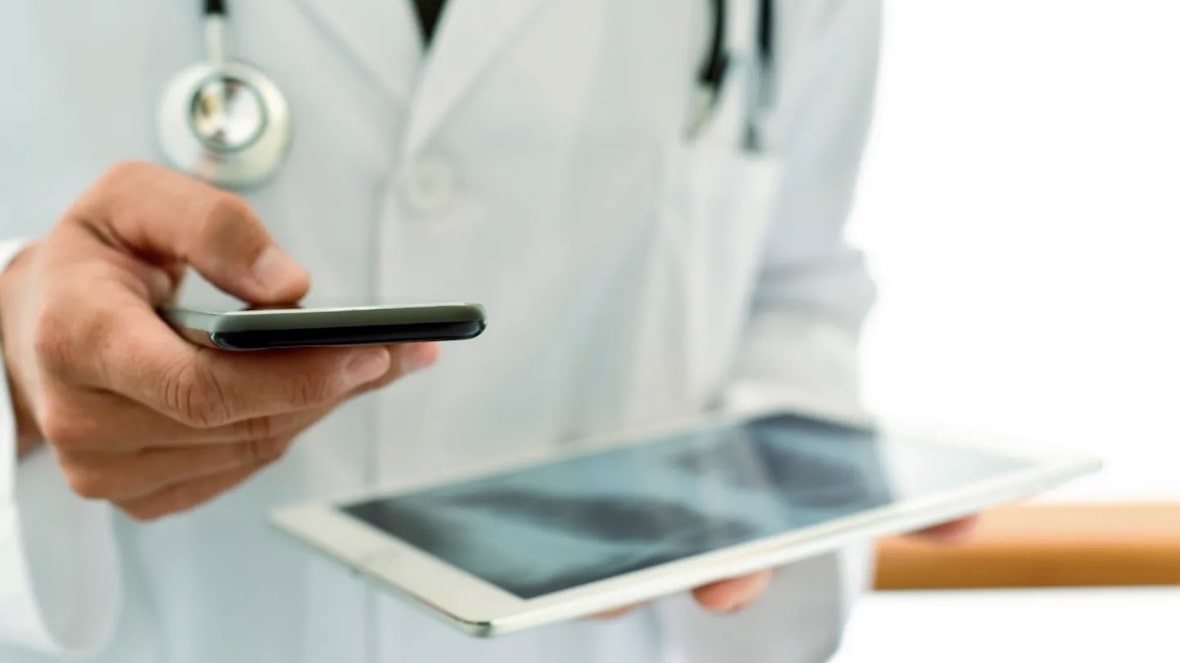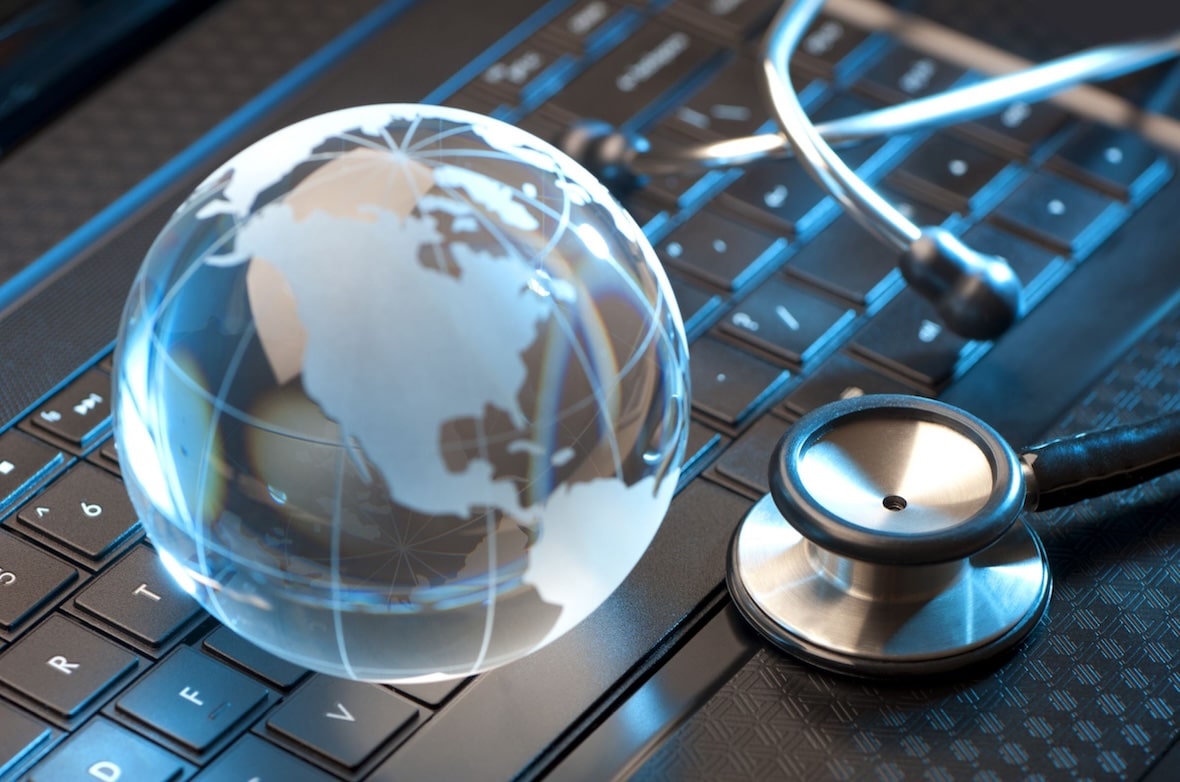Now, more than ever in recent history, medical innovations are being embraced, and 2021 promises to bring inspiring and explosive developments in healthcare technology. This blog highlights five technologies that provide more efficient healthcare to a wider population.
Focus on patient experience
Consider this, 2021 marks only half a century since Dr. Godfrey Hounsfield created the first CT scanner. Yet since then, modern medicine has become capable of 3D printing body parts, using robotics, and growing a liver from stem cells.
Healthcare innovations are constantly evolving and include not only these examples, but medications, vaccines, procedures, and processes. The purpose of such inventions is to enhance and streamline function, provide better care, and reduce costs.
Digital health technology is another example of this. It allows the use of virtual practice, alternate communication techniques, no-contact treatment, robotic process automation (RPA), and much more.
Although virtual health is nothing new, its use is only truly beginning to take hold now. Healthcare technology is increasingly targeted at making telehealth easy to navigate for patients and providers. And as the world continues to work remotely, these five technologies will help further streamline healthcare in 2021
- Artificial intelligence
The world has seen what artificial intelligence (AI) can do, and now everybody wants more of it. There is a lot of anticipation surrounding how much AI can contribute to our industries, and it’s already proven very valuable in health and medicine.
BlueDot, an application by the Canadian corporation of the same name, uses an AI-powered algorithm to search foreign news reports, disease networks, and various media sources.
It was the work of this AI system that first identified COVID-19 as a type of pneumonia in Wuhan at the end of 2019. Since its establishment in 2013, BlueDot has also been responsible for valuable discoveries relating to the Zika Virus and Ebola.
Orion Health’s Orchestral machine learning solution can analyse large data sets to predict long-term conditions, enabling interventions when they are needed the most. The technology has the capability to predict an individual’s risk of developing a disease and provide an opportunity for clinicians to diagnose patients in an early stage of their condition and to intervene sooner, resulting in improved health outcomes for patients. With machine learning tools in place, healthcare organisations have the potential not only to benefit patients with precision care delivery but to reduce treatment costs and save a substantial amount each year.
AI has other benefits in addition to pandemic detection and virus analysis, including:
- Temperature screening
- Vaccine research
- Facial recognition
- CT-scan analysis
- Predictive Medicine
2. Healthcare chatbots
AI developments have also ushered in the use of chatbots in healthcare. A chatbot is a software platform that can engage in conversation, using automated responses to reply and talk to patients.
Chatbot technology is suitable for various healthcare functions including patient organization, customer service, emergency assistance, diagnosis of mild conditions, and medication administration, with further improvements expected to occur in 2021.
Orion Health is set to launch a chatbot that will help patients navigate online health portals. This will provide patients with unlimited access to information and support without having to call or physically visit their local surgery. The chatbot will substantially reduce administrative costs.
3. Voice search
“Stay home!” This was the global call to all people in 2020, and it may well continue deep into 2021.
What has this meant for healthcare providers and patients? Well, social distancing and remote consultations have had to rely heavily on telemedicine, including digital solutions like smartwatches, video calling, mobile health apps, and social media.
The Centre For Disease Control defines telehealth as “the use of two-way telecommunications technologies to provide clinical health care through a variety of remote methods”. The institution recorded 50% more telehealth visits in 2020’s first quarter than in the first quarter of 2019.
Not only does telemedicine make-at-home or remote care possible, but it cultivates a culture that promotes people taking care of themselves. Last year, Apple partnered with Singapore to establish Lumihealth, an app that has significantly benefited the wellbeing of the country’s citizens.
Voice searching is a combination of telemedicine and artificial intelligence. By 2018, 27% of the global internet population, used voice searches on their mobiles.
This includes searches related to healthcare, making the voice search industry one to watch in medicine. In particular, healthcare providers need to consider how to make their services accessible to locals via voice search, to present customers with more options near them.
Orion Health’s Remote Patient Monitoring (RPM) solution enables high-cost complex patients to be cared for in the comfort of their homes. The technology can help monitor the patients medication adherence, improve communication with the patient’s circle of care and helps patients understand how to manage their care and determine when to reach out for help.
4. Augmented reality
Like AI, Augmented Reality (AR) tends to get a bad rep – people think about those sci-fi films where the technology turns on human beings. In reality- not sci-fi alternate reality – these technologies have the potential to substantially elevate health services for patients and healthcare workers.
AR gives healthcare workers greater capacity for learning and service provision. Students can practice and visualize medical procedures, as in the case of two Brazilian surgeons who used Hololens to assist with spinal surgery, and practising professionals can conduct consultations and diagnoses in 3D spaces.
The technology also improves healthcare worker’s access to data, offering them live access to info that can support their procedures. Data technology
5. Data technology
Connected to data collection and protection is data interoperability. ‘Interoperability’ is the characteristic of technologies that allows them to connect to other systems or applications.
Data technology systems can store records of transactions and digital care records across multiple devices in a network. They can log all transactions, saving time and money that goes into doing this manually. Data technology cultivates transparency between users, convenient functionality, accessibility, and portability of information and data security.
Healthcare businesses also need to focus on ensuring data privacy and securing business communications and information. Data technology can enable compliance to data regulations for hospitals and gyms, as well as medical businesses, telehealth software companies, and health technology developers. Systems like RingCentral’s design collaboration software, make remote data and idea exchange possible for patients and workers.
Orion Health specialises in open technology systems that seamlessly integrate all forms of health and personal data across the entire health community and present that data back to users in real-time to provide optimum patient care.
Orion Health’s Population Health Management solution, Amadeus, supports FHIR (Fast Healthcare Interoperability Resources) APIs, innovative HL7 REST services for accessing discrete information. The platform allows third-party developers to access the rich data and services in real-time through its API management layer and open, REST-based APIs.
Takeaway
Considering the use of technology in your health business should be part of your strategy. While vast improvements have been made in the field of health technology, there is effort needed to further integrate technology and make it accessible.
The year 2020 has ushered healthcare into a new arena of digital health capabilities, that have a stronger focus on the patient experience. The five technologies discussed above are a step in the right direction in streamlining function, providing better care, and ultimately providing a better patient experience.
Orion Health has the vision to revolutionise global healthcare by delivering modern technology to ensure every individual receives the perfect care for them. If you are interested in any of the above solutions. Reach out to us for a chat.
Written by: Victorio Duran III – RingCentral US
Victorio is the Associate SEO Director at RingCentral, a global leader in cloud-based communications and collaboration solutions. He has over 13 years of extensive involvement in web and digital operations with diverse experience as a web engineer, product manager, and digital marketing strategist.




